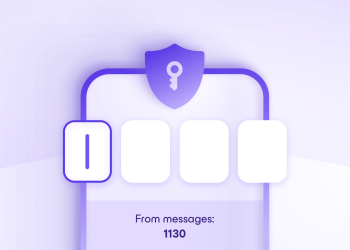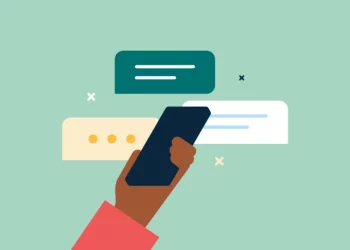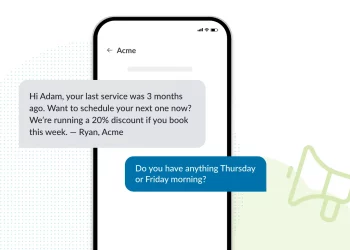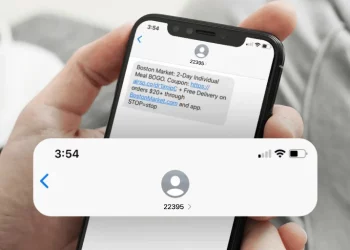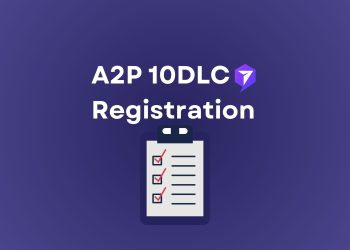In today’s fast-changing healthcare world, talking to patients is key. With more telehealth and remote visits, keeping patient info safe is crucial. The Health Insurance Portability and Accountability Act (HIPAA) sets strict rules for keeping patient data safe. Healthcare providers must use services that follow these rules, such as outsourcing communication tasks.
HIPAA-compliant answering services are essential for healthcare providers. They offer 24/7 support and keep all patient talks private. These services make patients happier by answering quickly and help doctors by taking off some work. As we move into 2025, the need for these services will only grow.
Understanding HIPAA Compliance in Answering Services
What is HIPAA?
The Health Insurance Portability and Accountability Act (HIPAA) was passed in 1996. It protects patient health information from being shared without their consent and ensures that healthcare providers and their partners keep patient information safe and private.
Importance of HIPAA Compliance in Answering Services
When healthcare providers use third-party answering services, these services must follow HIPAA rules. Not following these rules can lead to big fines and harm their reputation.
Key parts of HIPAA compliance in answering services include:
- Business Associate Agreements (BAAs): These contracts show who is responsible for keeping patient info safe.
- Secure Communication Channels: They use encrypted systems to send and store patient information safely.
- Employee Training: They ensure all staff know about HIPAA rules and how to follow them.
- Audit Trails: They keep logs of all actions to check who has accessed patient information and to find any breaches.
Key Features of HIPAA-Compliant Answering Services
Healthcare providers should look for these features in an answering service:
1. 24/7 Availability
Patients need help anytime, like in emergencies. A good answering service is always ready to help.
2. Secure Messaging
The service should use encrypted messages to send patient information safely, so no one else can see it.
3. Trained Operators
Operators must know medical terms and HIPAA rules to talk to patients right.
4. Customizable Scripts
Custom scripts help operators get the right info from patients while following rules.
5. Integration with Electronic Health Records (EHR)
Working with EHR systems makes it easy to document and find patient information.
6. Multilingual Support
Supporting many languages helps talk to patients from different backgrounds.
Top HIPAA-Compliant Answering Services for 2025
Here are some top HIPAA-compliant answering services for 2025:
1. MedConnectUSA
MedConnectUSA specializes in healthcare communication. They offer HIPAA-compliant services with agents trained in medical protocols. This ensures patient calls are handled professionally and confidentially, improving patient satisfaction.
2. PatientCalls
PatientCalls provides secure, HIPAA-compliant medical answering services. They offer 24/7 support, ensuring patient communications are managed efficiently and securely.
3. AnswerHero
AnswerHero offers HIPAA-compliant virtual receptionist services. It provides bilingual support and secure messaging. Its trained operators handle patient interactions with care and in compliance with regulations.
4. notifyMD
notifyMD provides 24/7 healthcare answering services with a focus on HIPAA compliance. Their virtual receptionists are trained in medical protocols. This ensures patient calls are managed professionally and confidentially.
5. Callin.io
Callin.io offers AI-powered phone agents that manage calls autonomously while adhering to HIPAA standards. Their platform ensures efficient communication without compromising patient data security.
Benefits of Using HIPAA-Compliant Answering Services
Using a HIPAA-compliant answering service has many benefits:
1. Enhanced Patient Trust
Secure handling of patient information builds trust between patients and healthcare providers.
2. Operational Efficiency
Outsourcing communication tasks lets medical staff focus on patient care, improving efficiency.
3. Cost Savings
Reducing the need for in-house staff to manage calls can save healthcare providers money.
4. Risk Mitigation
Following HIPAA regulations minimizes the risk of data breaches and penalties.
5. Improved Patient Satisfaction
Prompt and professional responses to patient inquiries enhance the patient experience.
How to Choose the Right Service for Your Practice
When choosing a HIPAA-compliant answering service, consider these factors:
1. Assess Specific Needs
Determine the volume of calls, language requirements, and integration needs specific to your practice.
2. Evaluate Compliance Credentials
Ensure the service has the necessary certifications and adheres to HIPAA regulations.
3. Review Training Protocols
Inquire about the training provided to operators to handle medical information appropriately.
4. Consider Scalability
Choose a service that can grow with your practice and adapt to changing needs.
5. Analyze Cost Structure
Understand the pricing model to ensure it aligns with your budget and provides value for money.
Conclusion
In 2025, HIPAA-compliant answering services are key in healthcare. They ensure secure and efficient communication. This is between providers and patients.
Choosing the right service can boost patient satisfaction, improve your practice’s efficiency, and protect sensitive information.
Frequently Asked Questions (FAQs)
1. What is a HIPAA-compliant answering service?
A HIPAA-compliant answering service helps manage patient calls and messages. It follows the Health Insurance Portability and Accountability Act (HIPAA) rules. This means they keep patient information safe by using encryption and training staff on privacy.
2. Why is HIPAA compliance essential for answering services?
HIPAA rules are key to protect patient data. Without them, services could face big fines and legal trouble. By being HIPAA-compliant, services keep patient trust and protect their reputation.
3. What is a Business Associate Agreement (BAA), and why is it important?
A Business Associate Agreement (BAA) is a contract between a healthcare provider and a third-party service. It outlines how they will protect patient data. This agreement is vital for any service handling patient information.
4. How do HIPAA-compliant answering services protect patient information?
They use several ways to keep patient data safe:
- Data Encryption: They make sure all data is encrypted when sent or stored.
- Access Controls: Only authorized people can access patient data.
- Regular Training: Staff get ongoing training on HIPAA rules.
- Secure Messaging Platforms: They use platforms that meet HIPAA standards for messaging.
5. Can HIPAA-compliant answering services handle after-hours calls?
Yes, they offer 24/7 support. This means patient calls are answered any time, not just during office hours. It helps keep patients happy and ensures urgent issues are quickly handled.
6. Are these services suitable for small practices or only large healthcare facilities?
These services work for all healthcare providers, big or small. They offer solutions that fit each practice’s needs. This way, all providers can have secure and efficient patient communication.
7. What are the benefits of using a HIPAA-compliant answering service?
The main benefits are:
- Enhanced Patient Trust: It shows a commitment to keeping patient information private.
- Operational Efficiency: It lets medical staff focus on care by handling calls and messages.
- Cost Savings: It reduces the need for in-house staff, saving money.
- Risk Mitigation: It lowers the risk of data breaches and penalties.
- Improved Patient Satisfaction: It ensures patients get quick answers to their questions.
8. How do I choose the right HIPAA-compliant answering service for my practice?
Consider these factors:
- Compliance Credentials: Make sure the service is HIPAA-compliant and ready to sign a BAA.
- Experience: Choose providers with healthcare experience.
- Customization: Find services that can adjust to your practice’s needs.
- Technology: Check their security and technology.
- References: Ask for testimonials from other healthcare providers.
9. Do these services integrate with Electronic Health Records (EHR) systems?
Many HIPAA-compliant services work with EHR systems. This makes updating patient records easy and communication smooth.
10. What should I do if I suspect a breach of PHI by my answering service?
If you think there’s a breach:
- Immediate Notification: Tell your answering service right away.
- Investigation: Do a deep dive to see how big the breach is.
- Reporting: Tell the right authorities about the breach, as HIPAA says.
- Mitigation: Try to lessen any harm to those affected.
- Review and Revise: Check and improve your security to avoid future breaches.
Having a clear plan for incidents is key. Make sure your answering service agrees to help in such cases.


